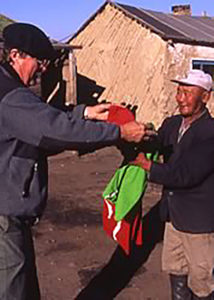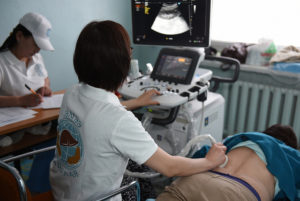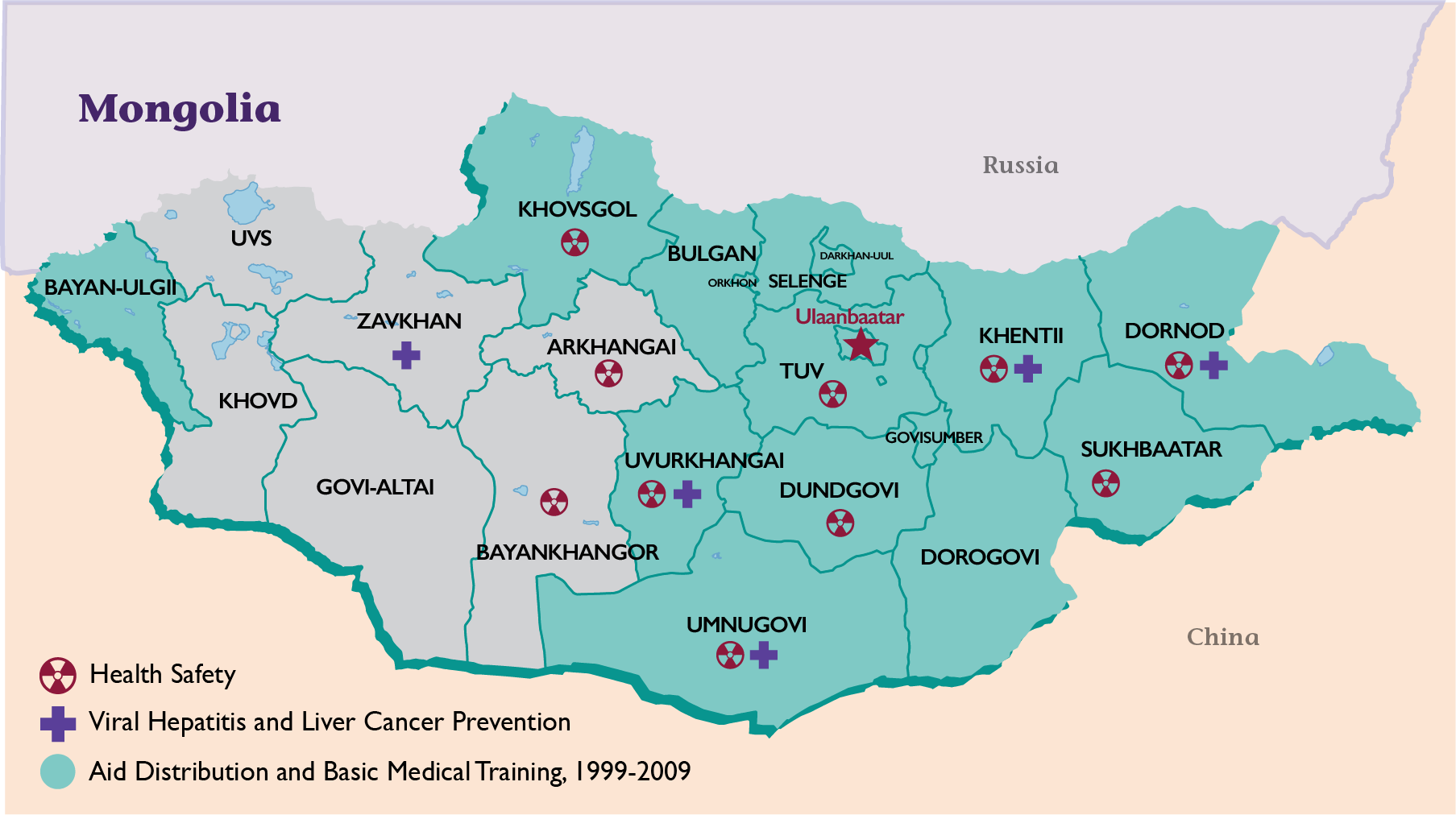
After the collapse of its Soviet-supported economy in 1990, Mongolia was economically devastated. In 1992, Flagstaff-based photojournalist, David Edwards, began photographing there. In 1993, seeing a desperate need, Edwards began hand-carrying duffel bags of donated winter clothing from Flagstaff, and personally placing this aid directly into the hands of those who needed it most. At this time, Edwards focused on orphanages and street children. In 1997, Edwards, Dianne Hasenbank and a group of Flagstaff residents founded the Mongolian Orphans Association. In 1999, Flagstaff volunteers distributed a 40-foot sea container of aid and delivered it hand-to-hand throughout Mongolia. In 2000, the organization’s name was changed to FIRE – Flagstaff International Relief Effort. After a second distribution trip in 2000, FIRE took a short break to restructure, and in 2003, Meredith Potts, Edwards’ photography business manager, stepped in as Executive Director. In 2005, medical mission trips were added in conjunction with the winter clothing distribution trips, providing much needed training and medical supplies.
Between 1999 and 2009, FIRE reached 15 of Mongolia’s 21 provinces with ten 40-foot sea containers of supplies and aid. 46 American volunteers went door-to-door, guided by local social workers, seeking out the neediest families. 76 tons of aid was personally delivered to 65,000 individuals. 23 volunteer medical professionals provided $720,000 of medical supplies to 348 clinics and 1,200 hours of training to 2,100 Mongolian health care workers. 80 computers and 6,000 English books were also delivered to one dozen schools.

In 2009, FIRE refocused on sustainable, long-term public health programs. FIRE began partnerships with the National Institutes of Health and Rotary International on hepatitis research and prevention. Since 2009, FIRE has provided 8,526 people in 7 provinces with comprehensive liver and cancer screenings; distributed 78,500 pieces of community awareness materials; vaccinated 3,022 people; trained 3,571 health care workers; distributed 155,000 sharps containers and $1,000,000 in medical supplies; distributed 2,000 health safety training videos; examined and educated 523 kindergartners about proper oral health.
FIRE expanded into Nepal following the 2015 earthquake by supporting the residents of the Langtang Valley with elder care, basic aid support, medical support, and heritage programs.
In 2016, FIRE was recognized by the World Health Organization and the European Association for the Study of the Liver as one of five “Innovative Hepatitis Screening Projects” in the world. FIRE continues to design and implement programs that are culturally sensitive, focused on rural, underserved populations, that can be replicated in other countries and communities across the world

